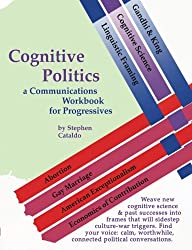I've heard a lot of attacks on Biden, "He should get out," with harsh lists of everything he's ever done wrong and nothing he's done right.
Imagine you liked Biden and had half a mind to vote for him in the primary. People are trying to convince you to change your vote, and also stay energized after the primaries. How well does the comment below work; what would you change? [Cognitive Politics is about communications approaches, not about particular candidates.]
I went to college in tiny Delaware with Biden as our Senator. I often disagreed with him but he worked hard and along with some serious bad choices most of us have now heard many times (which yes are serious bad choices) he also did a lot of good work too, and worked hard — his efforts to fight some aspects of militarization and Central America death squads were quality work and important — and he gave a damn any time his privilege let him see what was actually going on.
Back then he was more blunt and real and human than any other politician I knew of: he didn't wear a fake face for the voters. And now he is a human being who really needs to retire. I mean that more as a criticism of the rest of us than him: I hope I never decide I'm past my prime, but it's going to happen, and I hope people around me don't let me do to myself what Biden's never-retire-supporters are putting him through in front of the whole country. Even if you find his politics perfectly match yours, even if he was a great candidate ten years ago, this isn't going to end well for anyone.
This approach is a "steel argument," the opposite of a paper tiger — make the opposing case strong enough that every reader feels heard, with a feeling of mutual exploration instead of point-scoring. Thoughts? Ways to improve it?
